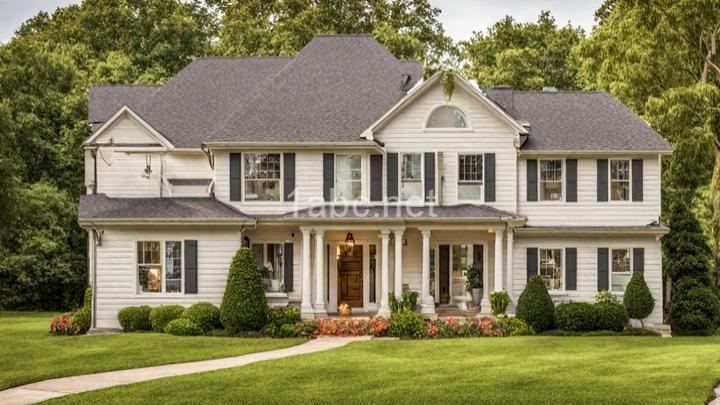How to Save Money on Homeowners Insurance without Compromising Coverage

Introduction:
Homeowners insurance is an essential investment that helps protect your most valuable asset - your home. It provides coverage for damages caused by natural disasters, theft, and liability claims. However, many homeowners struggle with high premiums and worry about compromising coverage to save money. In this article, we will explore practical strategies to help you save money on homeowners insurance without sacrificing the level of protection you need.
I. Shop Around for the Best Rates:
One of the most effective ways to save money on homeowners insurance is to shop around and compare rates from different insurance providers. Insurance premiums can vary significantly from one company to another, so it's essential to take the time to research and obtain multiple quotes.
To make this process easier, you can take advantage of online comparison tools that allow you to input your information and receive quotes from various insurers. Additionally, you can consider contacting an insurance broker who can help you navigate the market and find the best rates for your specific needs.
When comparing rates, it's crucial to consider both price and coverage. While it may be tempting to choose the cheapest policy, it's essential to ensure that the coverage offered is adequate for your needs. By striking a balance between affordability and coverage, you can save money without compromising your protection.
II. Increase Your Deductible:
Another effective strategy to lower your homeowners insurance premiums is to increase your deductible. A deductible is the amount you are responsible for paying out of pocket before your insurance coverage kicks in. By raising your deductible, you can reduce your monthly payments.
However, it's important to note that this strategy is suitable for homeowners who can comfortably afford higher out-of-pocket expenses in case of a claim. Before increasing your deductible, consider your financial situation and ensure that you have sufficient funds to cover the deductible amount if needed.
III. Bundle Your Policies:
Bundling your homeowners insurance with other policies, such as auto or life insurance, can lead to significant savings. Many insurance companies offer discounts for customers who have multiple policies with them. By consolidating your insurance needs with one provider, you can take advantage of these discounts and reduce your overall premium costs.
If you already have homeowners insurance, it's worth checking with your current insurer to see if they offer multi-policy discounts. Alternatively, you can explore options with other insurance companies to find the best bundled rates. Be sure to compare the savings from bundling policies with the cost of separate policies to ensure that it's a cost-effective option for you.
IV. Enhance Home Security:
Improving your home security measures can also help lower your homeowners insurance premiums. Insurance companies consider homes with enhanced security features to be at a lower risk of theft or damage, resulting in reduced premiums for homeowners who invest in these measures.
Consider installing security systems, such as burglar alarms, surveillance cameras, and motion sensor lights. Additionally, make sure you have smoke detectors and deadbolt locks in place. These safety features not only provide peace of mind but can also lead to potential discounts on your insurance premiums.
V. Maintain Good Credit:
Believe it or not, your credit score can impact your homeowners insurance rates. Insurance companies consider individuals with good credit scores to be more responsible and less likely to file claims. Therefore, maintaining a good credit score can help save money on your premiums.
To improve and maintain a good credit score, make sure to pay your bills on time, reduce your debt, and avoid maxing out your credit cards. Regularly monitoring your credit report and addressing any errors or issues promptly can also contribute to maintaining a favorable credit score.
VI. Review Your Coverage Regularly:
It's essential to review your homeowners insurance policy regularly to ensure that it aligns with your needs. An annual review can help you identify any changes in circumstances or home improvements that may require adjustments to your coverage or premiums.
Contact your insurer or agent to discuss any significant changes, such as renovations, additions, or upgrades to your home. These changes may affect the replacement cost or value of your home, which can impact your coverage needs and premiums. By staying proactive and keeping your policy up to date, you can avoid paying for unnecessary coverage and ensure that you are adequately protected.
Conclusion:
Saving money on homeowners insurance without compromising coverage is possible with a little effort and strategic planning. By shopping around for the best rates, increasing your deductible, bundling policies, enhancing home security, maintaining good credit, and reviewing your coverage regularly, you can find ways to reduce your premiums without sacrificing the level of protection you need.
Remember, if you have any specific questions or concerns about your homeowners insurance, don't hesitate to reach out to us. We're here to help you navigate the complexities of insurance and find the best solutions for your unique needs. With these money-saving strategies, you can take control of your homeowners insurance costs and enjoy peace of mind knowing that your home is well-protected.
FREQUENTLY ASKED QUESTIONS
What are some ways to save money on homeowners insurance?
There are several ways to save money on homeowners insurance. Here are a few strategies you can consider:
-
Shop around and compare quotes from different insurance providers. This allows you to find the best coverage at the most affordable price.
-
Increase your deductible. By opting for a higher deductible, you can lower your premium payments. Just make sure you have enough savings to cover the deductible if you need to make a claim.
-
Bundle your insurance policies. Many insurance companies offer discounts if you purchase multiple policies from them, such as combining your homeowners and auto insurance.
-
Install safety features in your home. Adding security systems, smoke detectors, and fire extinguishers can reduce the risk of damage and theft, which may lead to lower premiums.
-
Maintain a good credit score. Insurance companies often consider your credit history when determining your premium. By maintaining a good credit score, you may be eligible for lower rates.
-
Review your policy regularly. As your circumstances change, your insurance needs may also change. Take the time to review your coverage and make adjustments if necessary to avoid paying for unnecessary coverage.
Remember, it's essential to strike a balance between cost-saving measures and ensuring you have adequate coverage for your home. It's always a good idea to consult with an insurance professional to find the best options for your specific needs.
Can I lower my premiums without sacrificing coverage?
Yes, it is possible to lower your premiums without sacrificing coverage. There are several strategies you can consider to achieve this goal. One option is to review your current policy and determine if there are any unnecessary coverages that you can remove. For example, if you have duplicate coverage through multiple policies, you can choose to keep only one and cancel the others.Another way to lower your premiums is by increasing your deductibles. By opting for a higher deductible, you are taking on more of the financial responsibility in the event of a claim, which can result in lower premiums. However, it's important to ensure that you have enough savings to cover the higher deductible amount if needed.
Additionally, you can explore discounts that may be available to you. Many insurance companies offer discounts for various reasons, such as bundling multiple policies, having a good driving record, or installing safety features in your home or car. It's worth contacting your insurance provider to inquire about any potential discounts that you may be eligible for.
Lastly, shopping around and comparing quotes from different insurance companies can help you find the best premium rates. Each insurance company has its own pricing structure and discounts, so it's wise to explore multiple options before making a decision.
Remember, while it's possible to lower your premiums, it's essential to ensure that you still have adequate coverage for your needs. Review your policy carefully and consider consulting with an insurance professional to help you make informed decisions.
Are there any discounts available for homeowners insurance?
Yes, there are often discounts available for homeowners insurance. Insurance companies offer various discounts to help homeowners save money on their premiums. Some common discounts include:
-
Multi-policy discount: If you have multiple insurance policies with the same company, such as auto and home insurance, you may qualify for a multi-policy discount.
-
Security system discount: Installing a security system in your home can lower the risk of theft or damage, which may make you eligible for a discount.
-
Smoke alarm discount: Having smoke alarms installed throughout your home can help prevent fire-related damage and may qualify you for a discount.
-
Claims-free discount: If you haven't filed any insurance claims in a certain period, typically three to five years, you may be eligible for a claims-free discount.
-
New home or renovations discount: Some insurers offer discounts for newer homes or homes that have recently undergone renovations, as these properties may have updated electrical systems and structural improvements.
It's important to note that the availability and amount of discounts can vary between insurance companies, so it's a good idea to shop around and compare quotes to find the best deal for your specific needs.
How can I determine the right amount of coverage for my home?
Determining the right amount of coverage for your home can vary depending on several factors. Here are a few steps you can take to help you determine the appropriate amount of coverage:
-
Evaluate the value of your home: Start by estimating the current market value of your home. Consider factors such as the size, location, and condition of your property. This will give you a baseline value to work with.
-
Assess your personal belongings: Take an inventory of your personal belongings, including furniture, appliances, electronics, and other valuable items. Consider their total worth and factor it into your coverage amount.
-
Consider the cost of rebuilding: Determine the cost of rebuilding your home from scratch. This includes construction costs, labor, materials, and any additional expenses that may arise during the rebuilding process.
-
Review local building codes: Familiarize yourself with the building codes and regulations in your area. These codes may impact the cost of rebuilding your home, so it's important to factor them into your coverage amount.
-
Think about liability coverage: Liability coverage protects you in the event that someone is injured on your property. Consider your level of risk and ensure you have adequate coverage to protect yourself financially.
-
Consult with an insurance professional: If you're unsure about the appropriate coverage amount for your home, it's always a good idea to consult with an insurance professional. They can provide expert advice based on your specific circumstances and help you understand the options available to you.
Remember, it's essential to regularly review your home insurance policy and make adjustments as needed. Life circumstances and the value of your belongings may change over time, so it's important to ensure you have the right amount of coverage to protect your investment.

